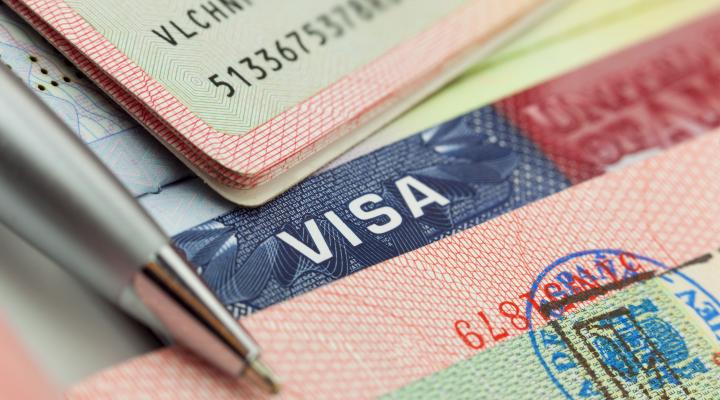
If you’re thinking of buying a second home in Spain, or perhaps you already own a second home in Spain, you may be wondering whether owning property in the country will give you any rights to Spanish residency. Or at least, whether it might make the process of securing Spanish residency a little easier. The answer to this question will depend on where you’re from. Since the UK left the EU, remaining in Spain permanently has become increasingly complicated for Britons, requiring a residency visa and meaning that they are treated just the same as third party nationals, whilst the process is much easier for residents from EU or EEA countries. Here’s everything you need to know?
Does Buying Spanish Property Grant Residency?
The short answer to the popular question, does buying Spanish property grant residency, is no. Or at least not automatically. It could, ultimately, make it a little easier to secure residency when you make your visa application but this will depend on your nationality, the type of visa you wish to secure, and the value of property you have purchased (if your property is worth more than 500,000 euros, for example, you could apply for a Golden Visa because you have invested the required amount in the Spanish property market).
The following factors will help to determine if owning property in Spain could help to provide a viable route to residency:
If You’re an EU/EEA Citizen (Or from Switzerland)
It doesn’t matter whether you own property in Spain or not; if you’re a resident of an EU or EEA country, or if you’re a Swiss national, then you’re welcome to apply for residency in Spain using the EU’s Freedom of Movement benefits. These legislations apply to all citizens in the above categories and purchasing property is not a requirement. EU citizens simply aren’t bound by the 90 out of 180-day visit rule in the same way that visitors from third party countries are.
After you have been in Spain for longer than 90 days, you will need to apply for Spanish residency (although many people circumnavigate that rule, as the movement of EU citizens within the EU is not monitored in the same way that the movement of third-party nationals is). Your residency application is likely to be approved if you meet any of the following criteria:
- You have a job in Spain or are working in Spain, but are self-employed
- You are a student
- Your spouse or partner is a Spanish national or resident
- You can demonstrate the financial means to support yourself and your family in Spain without needing to secure employment
- If you are employed when you make your application, but then lose your job, you should still be able to keep your right to residency.
Securing residency as an EU citizen involved visiting the local migration office (known as the Extranjeria) within 90 days of your arrival in the country, and register your details, alongside proof of your address. Provided you have all of the documentation required, you will be issued your Green Card instantly.
According to art. 15 of Spain’s Royal Decree 240/2007, “the residence, entry or permanence of a citizen of the European Union in Spain may only be denied when there are reasons of public safety, public order or public health”. This means that, provided you meet these very loose conditions, it is relatively straightforward for any EU/EEA citizen to move to Spain.
If You Are a Non-EU Citizen
If you are not an EU citizen, then the route to Spanish residency is very different than if you are an EU citizen. You can apply for residency, but the requirements are very strict and your second home owner status is rarely taken into account. If you have received an offer of employment in Spain then your employer must demonstrate that there was not a suitable EU candidate for the role, and then they can assist you with your residency application. If you wish to work in Spain but in a self-employed position, then self-employment visas are available but they are also difficult to secure: you will need to present a detailed business plan which is assessed by a panel of experts, set up a business which creates jobs and more.
The easiest way for a Non-EU Citizen to secure residency in Spain (regardless of their residency status) is by harnessing financial means and applying for a non-lucrative visa. In order to be eligible, a couple would need to demonstrate that they had access to an annual income of €33,894. You will also have to secure your own private medical insurance, and you cannot work if you are staying in Spain under a non-lucrative visa.
So, How Can Owning a Property Lead to Residency?
There is one route to residency for non-EU citizens via Spanish home ownership: applying for a Golden Visa. To be eligible, you must have a property (or properties) that are worth more than €500,000. Alternatively, if you’d prefer not to buy properties to secure this visa, you could also invest €2 million in public debt, buy Spanish shares worth €1million or deposit €1 million in a Spanish bank. Choosing to buy property is the most popular of these options.
It is important to note that this scheme can be applied retroactively, so if you purchased your property after September 2013, you could still use this to secure a Golden Visa, but your property or properties must still be worth the requisite amount. The Spanish Golden Visa comes with plenty of perks. Thee include securing residency for your family members, being able to work in Spain, and not having to live in the country (you will maintain your residency provided you make at least one visit to Spain a year). If you spend more than 183 days a year in Spain, it is worth noting that you will also be considered a tax resident of the country.
Have you always dreamt of retiring to Spain? Whether you’re looking for golden mile properties in Marbella or bargain property in Andalucia, our local property experts are perfectly placed to turn your dreams into a reality. Why not get in touch to find out more about how we can help you.

 English
English Español
Español Deutsch
Deutsch Français
Français Svenska
Svenska Nederlands
Nederlands Italiano
Italiano Norsk
Norsk Русский
Русский

































